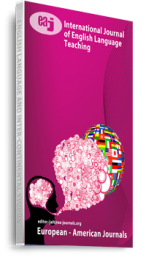Attitudes, motivation, and anxiety are three factors that can determine how successful a student is in learning a second language. This research is a pilot study to validate the survey questionnaire that is used by Shams (2008), which is originally taken from Gardner (1985), and see whether the survey items can be applied and are considered suitable for the Kuwaiti culture. The pilot study was practiced on 34 students that were randomly selected at PAAET, Kuwait, and consisted of both male and female students. Despite that some survey items were dropped due to them having low factor findings for not confirming with the criteria of component analysis, the rest of the survey items were found to be applicable to the Kuwaiti context and the analysis resulted in having three major components for achieving optimal English language learning. The three components are communication anxiety and confidence that talks about students’ nervousness and fear of being judged while speaking in English; perceived value and practicality of English that talks about how students perceive the English language and its practical benefits; and motivation drive for English fluency that talks about the motivation that students need to maintain their ambition in wanting to learn English. The current study concludes with believing that such three components are vital in every language learning environment, making the components applicable worldwide and not specific to one cultural context.
Keywords: Anxiety, Attitudes, English Language Learning, Kuwait, Motivation, PAAET

